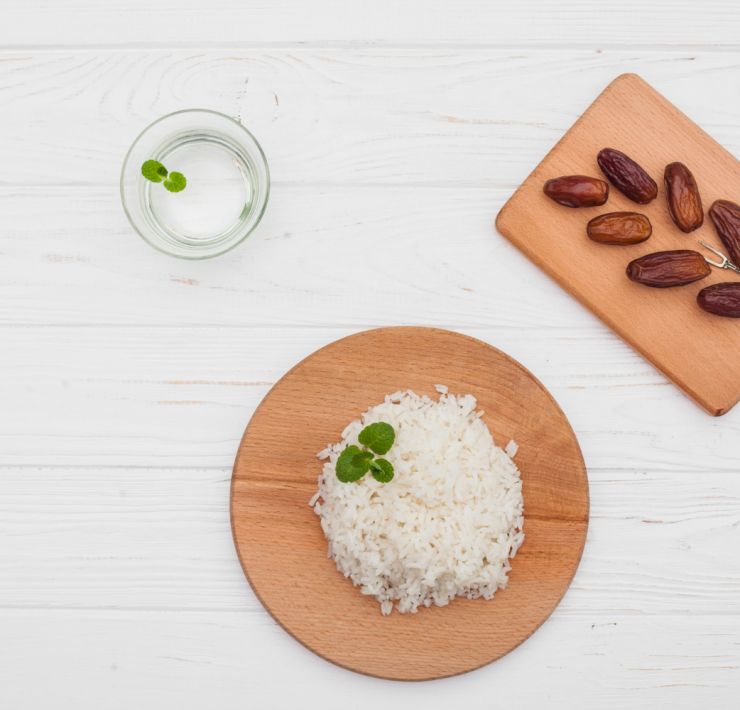Why The Paleo Diet Could Be The Perfect Choice For You
- This guide unwraps the fundamentals of an age-old diet plan that's making a modern comeback — the Paleo diet, including its benefits, drawbacks, and likely suitors.

Ever wondered what our ancestors used to munch on? The Paleo diet, also known as the Palaeolithic diet, caveman diet, or stone-age diet, gives us a tantalising glimpse into their daily grub. This diet plan revolves around foods that could be hunted, fished, or gathered during the Palaeolithic era — a period that existed 2.5 million to 10,000 years ago.
Table of Contents
Back to Our Roots: Understanding the Paleo Diet
So, what’s on the menu? Well, we’re talking lean meats, fish, fruits, vegetables, nuts and seeds. In other words, the kind of fare that our foraging forefathers could feasibly find. The diet specifically shuns foods that entered our food chain following the advent of farming, such as dairy products, legumes and grains.
Now, you might be wondering, why go back to the Stone Age? The theory behind the Paleo diet is that our bodies are genetically mismatched to the modern diet that emerged with farming. Farming changed what people ate and established dairy, grains and legumes as additional staples in the human diet. This relatively late and rapid change in diet, according to the hypothesis, outpaced the body’s ability to adapt. This mismatch is believed to be a contributing factor to the prevalence of obesity, diabetes and heart disease today.
The paleo diet is not a fad diet, it’s a return to the way humans were designed to eat.
Who May Benefit from the Paleo Diet?
Generally speaking, the Paleo diet can be a good fit for people who are looking to lose weight. This diet prioritises whole foods over processed ones, which can naturally lead to a reduction in calorie intake. It’s also high in protein, which can help you feel fuller for longer and thereby reduce snacking.
People with certain medical conditions may also benefit from the Paleo diet. For instance, studies have shown that this way of eating can improve symptoms of metabolic syndrome, such as high blood pressure and high cholesterol levels. It’s also been shown to be beneficial for people with type 2 diabetes, as it can help to regulate blood sugar levels.
But what about athletes? Well, many athletes have found the Paleo diet to be beneficial for improving their performance and speeding up their recovery post-workout. This is largely due to the diet’s focus on high-quality proteins and good fats.
However, it’s not just athletes and people with specific health conditions who can benefit from this diet. Even if you’re just looking to improve your overall health and well-being, the Paleo diet can be a good choice. It eliminates many of the foods that are common allergens, such as dairy and grains, and focuses on nutrient-dense foods like vegetables and lean meats. Plus, by eliminating processed foods, you’re also cutting out a lot of added sugars and unhealthy fats from your diet, which can help to improve your overall health.
Is the Paleo Diet Right for You?
As with any diet, it’s essential to consider your individual health needs, lifestyle, and food preferences before hopping on the Paleo bandwagon. The Paleo diet may be a good fit if you are looking to cut down on processed foods and sugar, or if you have certain dietary restrictions.
However, if you have any health conditions, such as heart disease or diabetes, it is highly recommended that you consult a healthcare professional before making drastic changes to your diet. And remember, a balanced diet, rich in a variety of foods, is key to good health.
Being aware of both the pros and cons can help you determine if it’s the right dietary path for you. To simplify things, here’s a handy table to give you a bird’s-eye view:
Pros & Cons
| Pros of the Paleo Diet | Cons of the Paleo Diet |
|---|---|
| Natural and Unprocessed: The Paleo diet promotes eating whole foods which are high in nutrients. | Cost: Eating natural, unprocessed foods can sometimes be more expensive than other types of diets. |
| High in Protein: This diet encourages a higher protein intake, which can lead to increased satiety. | Restrictive: The diet excludes certain food groups like dairy and grains, which can make it difficult to stick to long-term. |
| Eliminates Processed Sugars: By cutting out processed sugars, you can potentially reduce your risk of chronic disease. | Nutrient Deficiencies: The diet’s restrictions can potentially lead to deficiencies in certain nutrients. |
| May aid in weight loss: The focus on whole foods and elimination of processed items can help in losing weight. | Difficult to follow: The strict guidelines can make it tough to follow, especially when dining out or at social gatherings. |
| Anti-Inflammatory: The nutrients in whole foods can help combat inflammation in the body. | Lack of Scientific Evidence: There’s limited research on the long-term effects of the Paleo diet on weight and health. |
As with any dietary change, it’s important to talk to a healthcare provider and/or nutritionist before diving in headfirst. They can provide guidance based on your unique needs and health history. Remember, every body is different and what works for one person might not work for another. Bon appétit!
Thanks for reading! We hope this helps you on your journey to becoming a fitter and healthier version of yourself. Don’t forget to follow @naijafitfam on Instagram for more helpful content.





















Natural and unprocessed
High in protein
Eliminates processed sugars
May aid in weight loss
Anti-Inflammatory
Could be expensive
May be restrictive
Possible nutrient deficiencies
Difficult to follow
Limited research